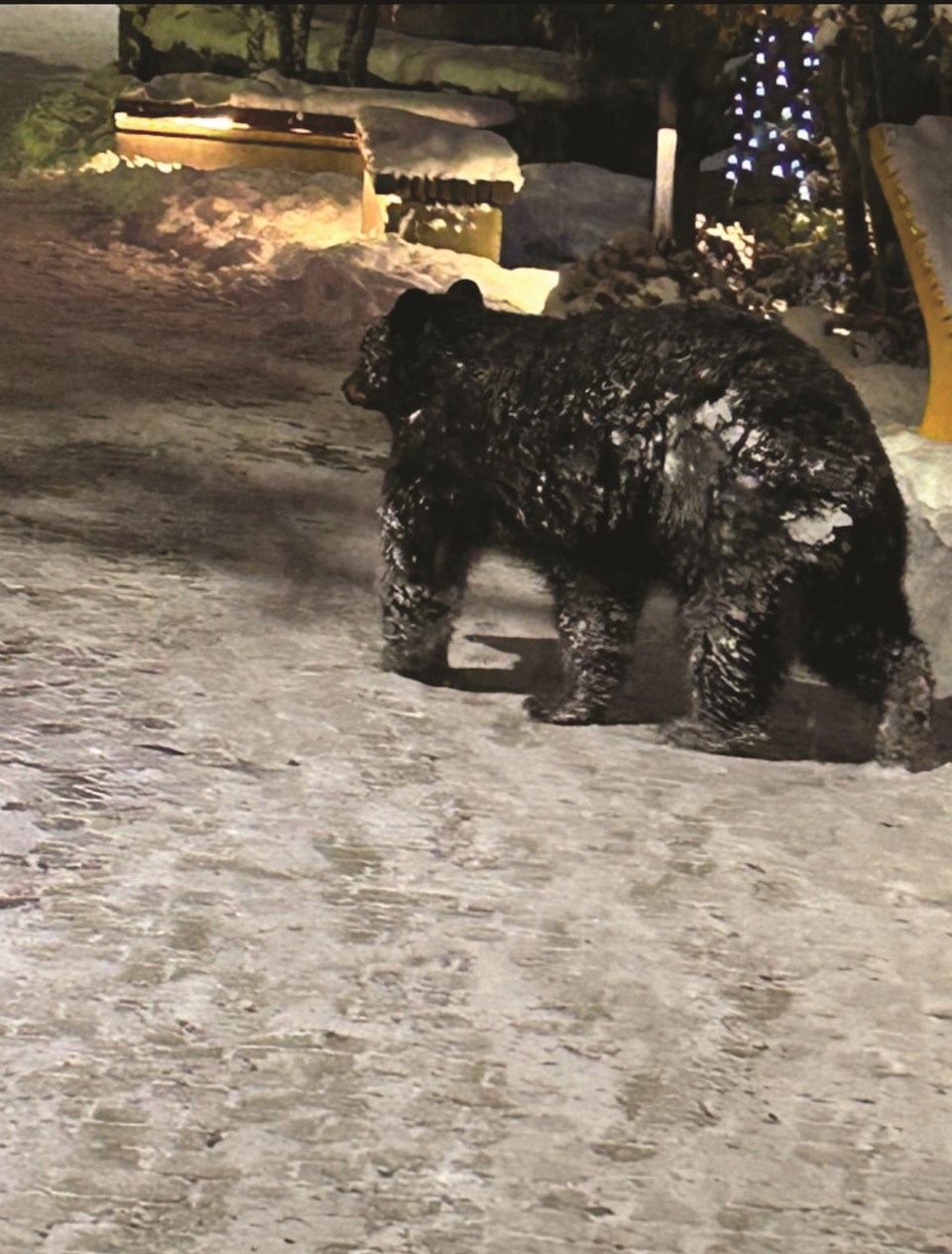After weeks of unsuccessful attempts to haze a black bear out of Whistler Village, conservation officers made the decision earlier this month to kill the mature male after deeming the animal’s behaviour a public safety risk.
The incident is serving as a reminder that winter weather is no excuse for locals and visitors to let their guard slip when it comes to securing wildlife attractants like garbage and bird feeders, said Sea to Sky conservation officer Sgt. Simon Gravel.
“This bear was very active for multiple weeks around the village,” he explained. “The bear was very persistent trying to access food, and he was not very responsive. We’re talking about multiple calls every night.”
Both the BC Conservation Officer Service (COS) and RCMP responded numerous times to draw the black bear away from confined spaces like underground parking lots, courtyards and the Village Stroll, Gravel explained. The COS also worked with Whistler Bylaw to address areas where the bear had accessed food.
The situation escalated when the bear started approaching people in search of food and forcing its way into food storage areas, causing property damage in the process.
“We came to the conclusion that there were not a lot of options and public safety was compromised by his behaviour,” Gravel explained. “We had to put him down, unfortunately, despite all the efforts.” The bear was killed on Friday, Dec. 16.
The bear was between five and 10 years old, Gravel estimated, and untagged, meaning the animal had no prior encounters with conservation officers or history of concerning behaviour.
The Resort Municipality of Whistler had previously issued a bear alert on Dec. 14, warning the community about a bear repeatedly “accessing garbage and other unnatural food sources in Whistler Village and Whistler Blackcomb Staff Accommodations” and reminding visitors, locals and businesses to keep garbage out-of-reach in locked buildings or wildlife-proof bins.
Though most black bears are typically settled in their winter dens by the holidays, Gravel said it is “fairly usual” to see some bear activity linger throughout the colder months. With just a few days left in 2022, other bears are currently still active in the village area, he confirmed, “and randomly, in the middle of the winter, we see some bears coming in and out of den.”
Still, when a bear successfully finds easily accessible food sources at this time of year, the animal is more likely to stay out, the conservation officer explained.
“We did a lot of effort to mitigate that and a lot of proactive audits in the village to make sure there was no food available, but it doesn’t take much for a bear,” said Gravel. “Little mistakes sometimes, a garbage bag left or a garbage bin left unlocked, there are all sorts of different events.”
The bear’s exceptional level of comfort approaching people to seek food also led Gravel to speculate that the animal may have been fed, or had food thrown in its direction from passers-by.
“That’s something that is difficult to address. In the middle of the night when bears are active, they’re encountering a lot of people, a lot of visitors, perhaps—and I don’t want to blame visitors, it could be locals, I don’t know—but people could be tempted at this time of the year, when it’s very cold, to think that the bear is hungry,” Gravel said.
“But that’s very alarming, because when a bear receives a food reward directly from someone, it is very likely to repeat the behaviour.”
The message? “Those bears don’t need food,” Gravel said.
In B.C., it is also illegal to both feed black bears and to leave attractants unsecured, he reminded the community. “We are asking the public to not be naive, to not assume that bears are in den and start to be negligent in terms of attractant management,” Gravel added.
“Attractant management in a place like Whistler needs to be 12 months a year.”



